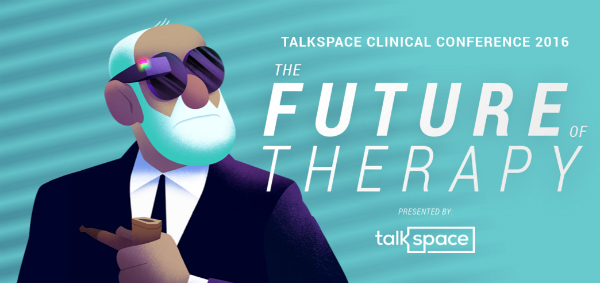It’s a natural reaction — when something good happens to us, we want to share that experience with others. Some of my friends had this reaction after their first experiences with therapy. They would recommend it casually, as if it were the new restaurant down the block.
“You’ve got to try it.”
“Everyone should be in therapy at least once.”
It was a life-changing experience for them, and their hearts were in the right place when they suggested it to those who would listen. I had harbored an interest in therapy and had even made psychology the focus of my undergraduate studies. I would listen with interest to their stories, but my response would always be the same.
“One day, but not right now.”
I would leave each conversation confident that was the right answer for me, but unsure why. There was no part of me that was opposed to therapy. The idea of opening up to a therapist and having an unfiltered conversation about everything going on in my life felt more like an inevitability than a remote possibility. Yet the moment didn’t seem right, and I began to wonder if they were wrong.
If I wasn’t open to therapy now, would I ever be? How would I know when I was ready?
As it turns out, I would enter therapy years after these initial conversations with friends and peers. And, yes, I do now find myself in the camp of “everyone can benefit from therapy.” But I have no regrets about not entering sooner. I am grateful I gave myself the time and space to enter therapy at a moment that felt appropriate for me.
Therapy is a deeply personal and often challenging process. If I had entered therapy before I was ready, I might have denied myself a chance to experience its benefits.
Entering therapy involves honest self-assessment and openness to addressing the personal and social challenges we face every day, the same challenges we often choose to hide from others and even ourselves. It requires trusting a therapist with self-disclosure and welcoming their reflections and feedback. It often pushes us to challenge our self-perceptions — and perceptions of those around us — and assess the thought patterns and coping habits that have become second-nature.
I would not have been ready for this process had I entered it four or five years ago. A younger me might not have possessed the humility to openly recognize areas where I was struggling, or been willing to accept a therapist’s insight into how I have been coping with stressors in my life. Honest self-reflection would have been a significant challenge. I likely would have resisted many of the aspects of therapy that would eventually create meaningful insight and perspective in my life.
Each time I considered entering therapy, there were a number of questions I would ask myself. I would think about my general mental health, the challenges I faced, my openness to the process of therapy, and any goals I had. While the decision to enter therapy is deeply personal and a unique process for each individual, perhaps these questions will be useful for those considering a conversation with a therapist.
Do I feel like I am on the right track?
Happiness varies moment-to-moment, and is at best a questionable metric to judge ourselves by. I have often found that my sense of mental health and well-being is more closely linked to pursuit of a path I find satisfying and fulfilling, even if I am still a significant way from achieving my goals. Professionally, personally, romantically — do I feel like I am working to create the life I want?
Do I recognize any stressors or challenges impacting multiple areas of my life?
Life often throws obstacles and anxieties our way, and it can be hard to tell what we can handle and when we should consider leaning on others for support. My serious consideration of therapy began when I recognized stressors beginning to impact other areas of my life — a personal stress impacting professional life or my relationships. When a specific anxiety begins to impact life more broadly, it may be a signal to consider therapy.
Am I looking for and open to change?
This was the most fundamental question I would ask myself. If the answer is “no, I’m not,” the timing might not be right at the moment. Therapy cannot be nearly as effective without openness and a willingness to challenge one’s thoughts, biases, and preconceptions. But if you have been considering therapy and feel open to an honest dialogue with a therapist, you may find the process deeply rewarding.
I believe everyone should be in therapy. But that doesn’t mean everyone should be in therapy right now. Take a moment, reflect, and consider some of the questions posed above. From my experience, when the time is right, you’ll know.
Talkspace articles are written by experienced mental health-wellness contributors; they are grounded in scientific research and evidence-based practices. Articles are extensively reviewed by our team of clinical experts (therapists and psychiatrists of various specialties) to ensure content is accurate and on par with current industry standards.
Our goal at Talkspace is to provide the most up-to-date, valuable, and objective information on mental health-related topics in order to help readers make informed decisions.
Articles contain trusted third-party sources that are either directly linked to in the text or listed at the bottom to take readers directly to the source.




